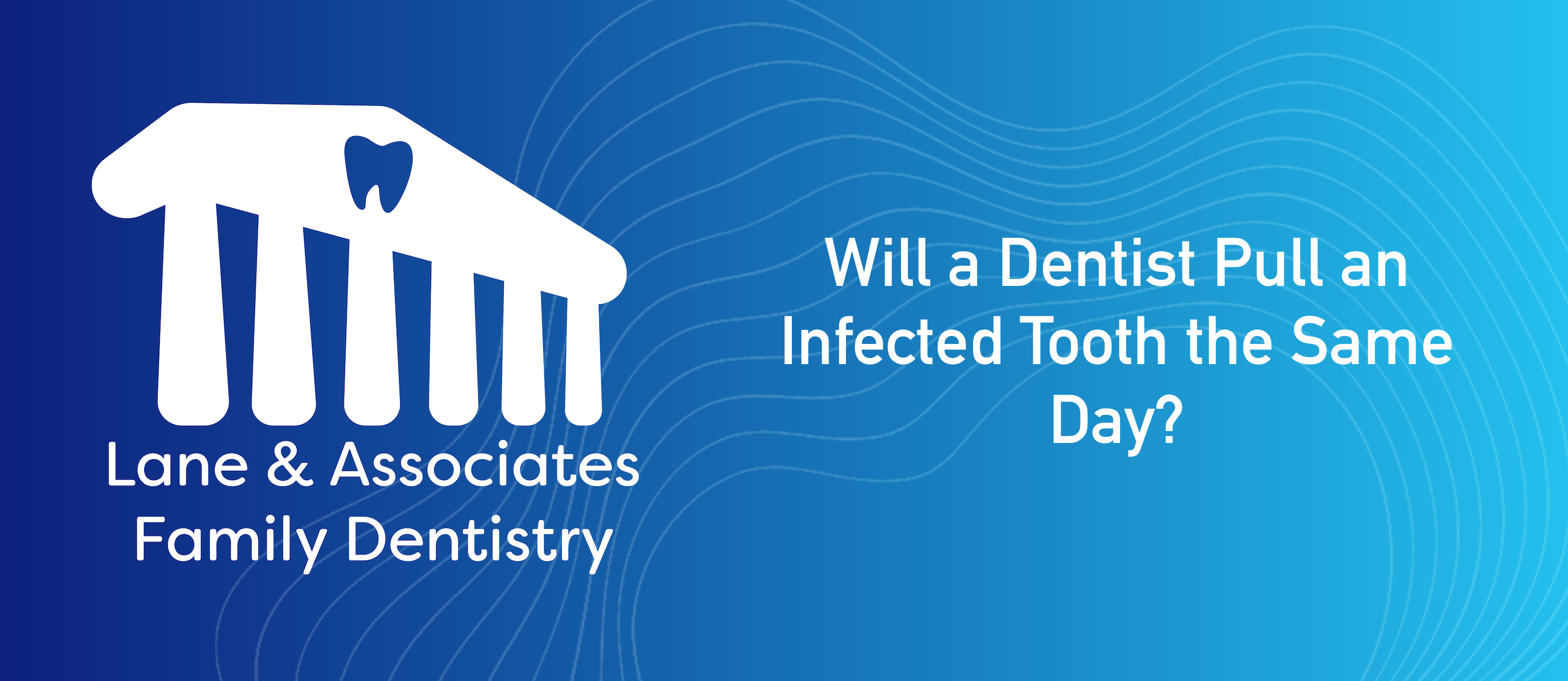Dealing with an infected tooth can be painful and worrisome, but understanding the process of tooth extraction can provide clarity and relief. Here, we’ll address common questions about extracting an infected tooth, including the timing of the procedure, its duration, the urgency of treating a tooth infection, and whether extraction effectively stops the infection.
Dealing with an Infected Tooth: What to Expect During Extraction
In many cases, a dentist will aim to address an infected tooth as promptly as possible to alleviate pain and prevent the infection from spreading. If you’re experiencing severe pain or discomfort due to an infected tooth, your dentist may recommend extracting the tooth on the same day as your appointment. However, this decision depends on several factors, including the severity of the infection, the availability of the dentist, and the patient’s overall health.

In situations where the infection is particularly severe or complicated, your dentist may opt to prescribe antibiotics first to reduce inflammation and control the spread of infection before proceeding with extraction. This approach allows for better management of the infection and may improve the success rate of the extraction procedure.
How Long Does It Take to Extract an Infected Tooth?
The duration of a tooth extraction procedure can vary depending on factors such as the location of the tooth, its condition, and the complexity of the extraction. Generally, extracting a single tooth can take anywhere from 20 minutes to an hour, including the time needed for preparation, anesthesia, and post-operative care instructions.

In the case of an infected tooth, the extraction process may take slightly longer due to factors such as inflammation, compromised surrounding tissue, or the presence of additional complications. Your dentist will assess the situation and determine the most appropriate approach to ensure a safe and successful extraction.
How Urgent Is a Tooth Infection?
A tooth infection, also known as a dental abscess, is a serious dental issue that requires prompt attention from a dentist. Ignoring or delaying treatment for a tooth infection can lead to severe pain, swelling, and potential complications such as the spread of infection to surrounding tissues or even systemic infection affecting other parts of the body.
Additionally, untreated tooth infections can cause damage to the tooth structure and may ultimately result in the loss of the affected tooth. Seeking timely treatment for a tooth infection is crucial to prevent further damage, alleviate pain, and preserve oral health.
If you suspect you have a tooth infection, it’s essential to contact your dentist as soon as possible for evaluation and treatment. Your dentist will assess the severity of the infection and recommend the appropriate course of action, which may include antibiotics, drainage of the abscess, or tooth extraction.
Will Pulling an Infected Tooth Stop the Infection?
While extracting an infected tooth removes the source of the infection, it may not entirely eradicate the infection on its own. In some cases, the infection may have already spread beyond the tooth and into the surrounding tissues, requiring additional treatment to fully eliminate it.

Following tooth extraction, your dentist may prescribe antibiotics to clear any remaining infection and promote healing. It’s crucial to take the prescribed antibiotics as directed and attend any follow-up appointments to ensure that the infection is properly controlled and the extraction site heals without complications.
Additionally, maintaining good oral hygiene practices, such as brushing and flossing regularly and attending routine dental check-ups, can help prevent future infections and maintain oral health.
In conclusion, extracting an infected tooth is often necessary to alleviate pain, prevent the spread of infection, and preserve oral health. While the timing and duration of the extraction procedure may vary depending on individual circumstances, seeking prompt treatment for a tooth infection is essential to avoid complications and promote recovery. If you’re experiencing symptoms of a tooth infection, don’t hesitate to contact your dentist for evaluation and appropriate care.


